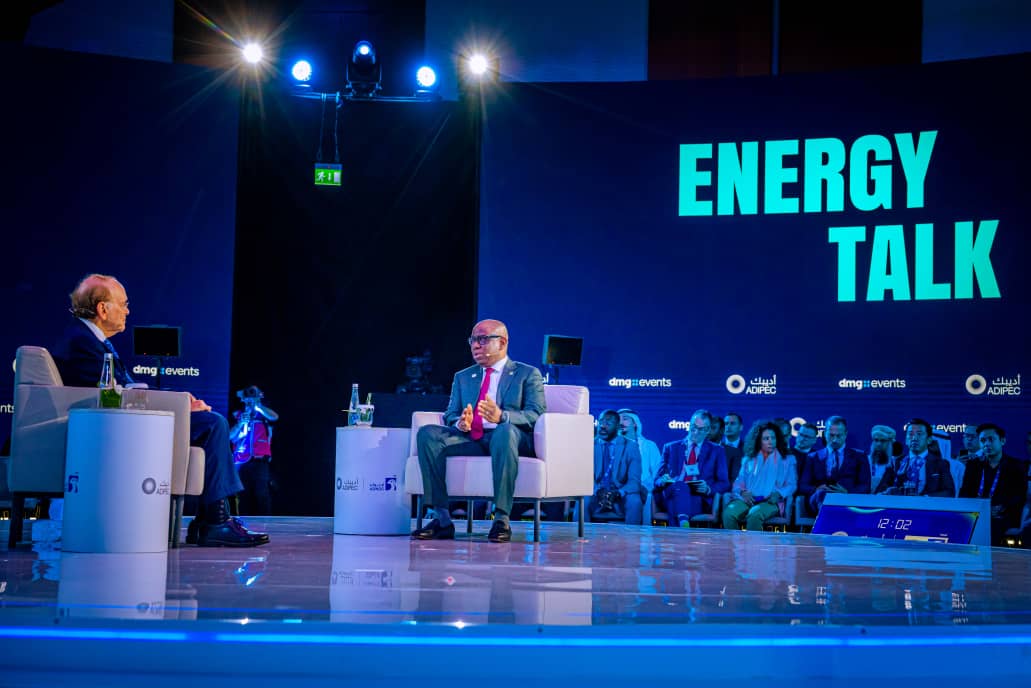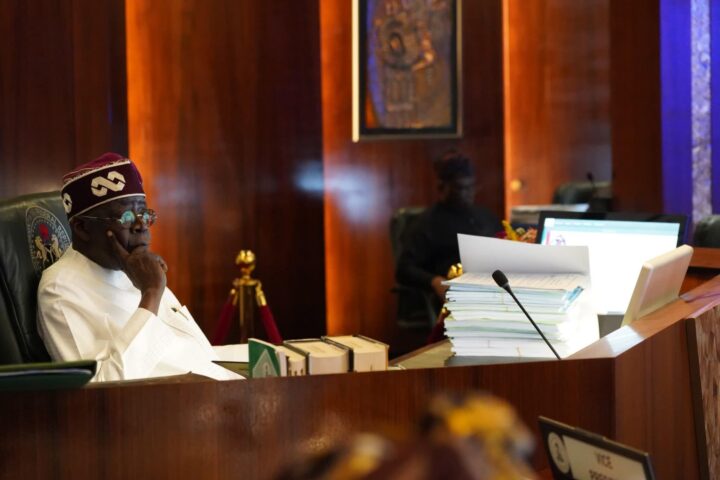Nigeria is open for open for business, and the Nigerian National Petroleum Company (NNPC) Limited is fit for the future,its Group Chief Executive Officer, Engr. Bayo Ojulari has said.
He spoke on Tuesday, at the “Energy Talk” session of the ongoing Abu Dhabi International Petroleum Exhibition and Conference (ADIPEC 2025) in Abu Dhabi, United Arab Emirates (UAE), where he invited the global stakeholders to co-invest in Africa’s energy transformation.
Fielding questions from the host and Pulitzer Prize-winning energy author Daniel Yergin, Ojulari emphasized Nigeria’s pivotal role in Africa’s energy milieu, adding that NNPC Ltd was the vehicle to the drive for energy sufficiency in the African continent.
There was need for bold global partnerships and investments to end the phenomenon of energy poverty across Africa,he said.
A statement signed by Andy Odeh, Chief Corporate Communications Officer, NNPC quoted Ojulari to have highlighted Nigeria’s vast oil, gas, and renewable energy potentials.
He stressed that under President Bola Tinubu’s Renewed Hope Agenda there are concerted efforts to transform Nigeria from an extractive economy to a diversified, investment-driven energy hub.
“Africa’s energy future must be built on pragmatism, partnerships, and purpose. At NNPC Limited, we are not just participating in the energy transition, we are shaping it from an African perspective. Our focus is pragmatic: grow production, monetize gas, deepen partnerships, and deliver value to Nigerians and global partners alike,” Engr. Ojulari said in the statement.
He explained that NNPC Limited has raised Nigeria’s oil output to 1.7 million barrels per day, with targets of 2 million by 2027 and 3 million in the long term, a growth that is driven by redefined relationships with IOCs and independents, removing legacy blockers and aligning on shared value.
He reaffirmed the company’s commitment to working with OPEC peers, African NOCs, and financial institutions to attract $30 – $60 billion in fresh investment by 2030, Ojulari.
He said new government incentives beyond the Petroleum Industry Act (PIA) are already attracting capital for deep-water exploration, dry gas development, and cost reduction.
He mentioned some of the nation’s high-profile energy initiatives such as upstream revival through accelerated new fields development, gas infrastructure expansion, including the near-completion of the Ajaokuta-Kaduna-Kano (AKK) gas pipeline and the Obiafu-Obrikom-Oben (OB3), and the rollout of cleaner energy, including the Presidential CNG Initiative and expansion of autogas corridors.

















